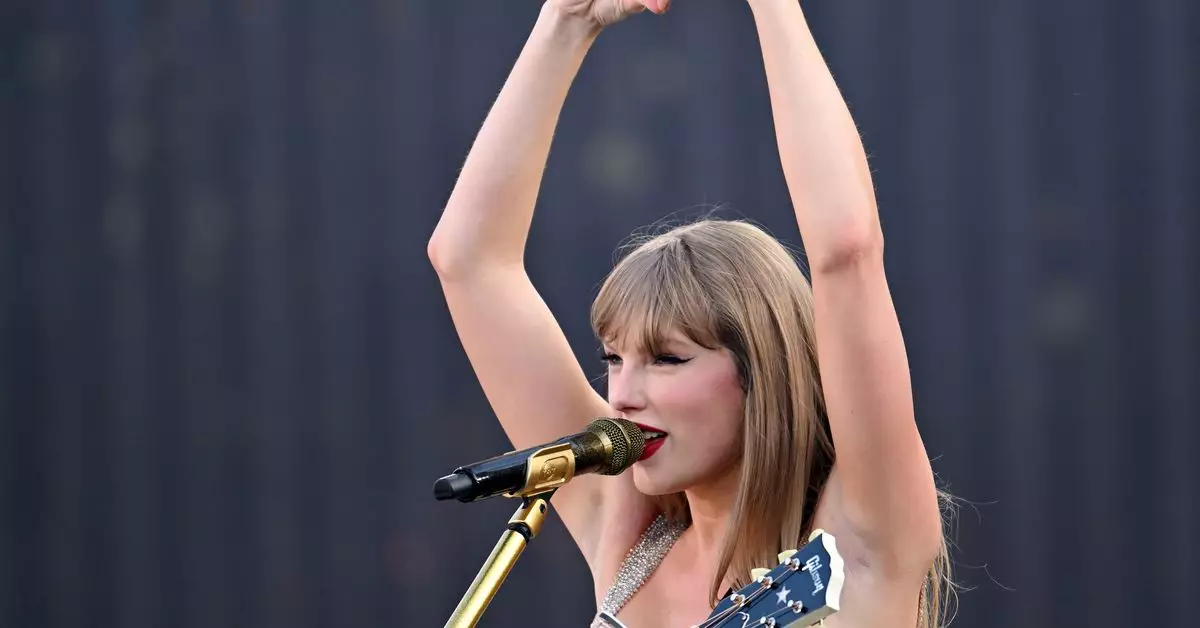In an era where social media reigns supreme, celebrities have increasingly taken on roles as influencers not just in entertainment but also in political landscapes. Taylor Swift, a prominent figure in the music industry, made headlines recently by publicly endorsing Vice President Kamala Harris for the upcoming presidential election. What makes this endorsement particularly significant is the catalyst: AI-generated images portraying her as a supporter of former President Donald Trump. Swift’s decision to clarify her political stance underscores the complexities of celebrity influence and the contemporary challenges posed by misinformation in the digital age.
Swift’s concerns regarding artificial intelligence are not unfounded. Misinformation spread through AI has become a pressing issue, particularly with the impending presidential election on the horizon. In her Instagram post, Swift articulated her disquiet about an incident where AI-generated imagery falsely depicted her as endorsing a political position contrary to her beliefs. This situation reflects a growing trend where the technology that should empower discourse instead creates confusion and fear. With the capability to fabricate convincing visuals and narratives, AI paves the way for a new form of political propaganda that challenges the integrity of democratic processes.
As a move to combat the disinformation epidemic, Swift has decided to leverage her platform not just to affirm her political choices but also to engage her audience in meaningful dialogue about crucial issues. She emphasized matters such as LGBTQ rights and reproductive health, encouraging her followers to join her in voting. By directing them to voter registration links, Swift exemplifies the role modern public figures can play in mobilizing civic engagement. This reflects a strategic pivot for many celebrities who, realizing the weight of their influence, are now opting to utilize their platforms for social good.
The emergence of AI technologies in political communications highlights a critical debate in society about the ethical use of these tools. The fear of manipulation and deception looms large, as exemplified by the fake robocalls imitating President Biden in New Hampshire, which aimed to suppress voter turnout. This incident reiterates the urgency for better regulation and ethical standards surrounding AI tools that have the potential to sway public opinion. Organizations, including tech giants like Google, have begun to implement measures aimed at reducing the risk of AI-induced misinformation, signaling that the industry acknowledges its responsibilities during election cycles.
Taylor Swift’s public stand against misinformation serves as a testament to the significant role of celebrities in modern democracy. As AI continues to evolve, the intersection between technology, politics, and public awareness requires vigilant scrutiny. By embracing transparency, Swift aims to inspire others to confront the challenges of misinformation head-on. In an age where the truth can easily be obscured by AI-generated illusions, the commitment of public figures to authenticity is crucial. As the election approaches, the imperative to inform and educate becomes increasingly urgent, underscoring the timeless necessity of truth in the face of deceit.

